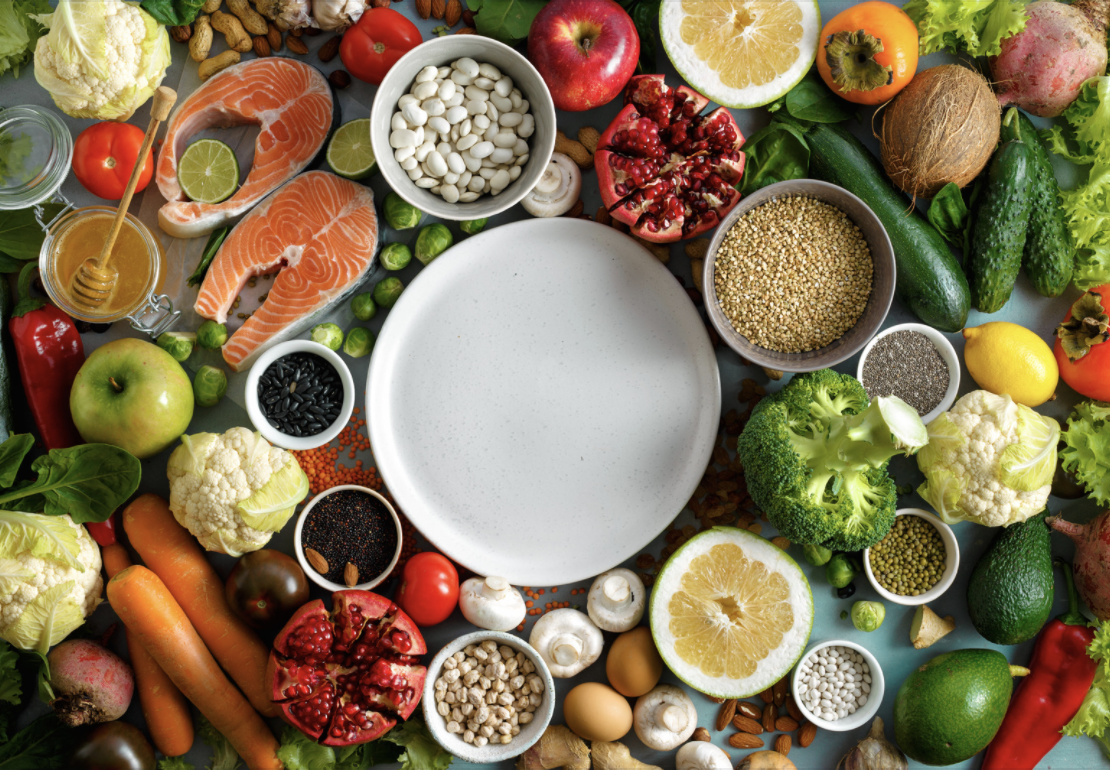Altered Plates: Changes In What And How We’re Eating
August 5, 2020

We won’t ask you to step on the scale, but many of us have experienced an altered state of eating since the pandemic began, including admission into the “quarantine 15” weight gain club. In a recent post in Forbes, writer Randi Mazzella cites a new study reporting that 76% of respondents admitted weight gains of up to 16 pounds during the quarantine, as many of us have been eating more, moving less, sleeping differently and seeking out food for comfort. Some of us are even on a slippery slope of increasing weight gain that can lead to all sorts of additional health problems. And it’s not an easy battle once the weight is put on: as a recent video from the BBC demonstrates, your brain is really wired to reward you with good feelings when you ingest the junk food- it’s hard to retrain yourself to find satisfaction with lower-calorie, healthier options.
This comes at the same time nutrition experts are realizing that food (that is, the right kind of food) can play a central role in helping you battle the stress of the coronavirus pandemic. In a recent article in The Wall Street Journal (Paywall), the work of Dr. Uma Naidoo, author of the new book, This Is Your Brain on Food: An Indispensable Guide to the Surprising Foods that Fight Depression, Anxiety, PTSD, OCD, ADHD, and More, is highlighted, as she introduces us to the concept of “nutritional psychiatry.” It seems that certain foods can help you manage emotionally difficult times. Figuring out which foods can address the balance of good and bad bacteria in your gut could actually lead to a better frame of mind during times of distress. Included in her nutritional arsenal are such foods as berries, nuts, fiber-rich and fermented options, and certain spices such as turmeric. While healthy foods won’t replace psychiatric medications, they could provide additional emotional support during tough situations. And in case you’re on the hunt for healthier food, take note of new nutritional labels that now make it easier to ditch the sugar and better understand serving sizes.
Finally, from a more macro level, the pandemic may lead many of us to completely re-think what and how we eat, separate and apart from our own personal circumstances. As evidence mounts that more of us are cooking at home, gardening, and searching out local food source options, we’re beginning to better understand the entire chain of our food system, including its implications for our health, our farmers, and even our climate. If you’re not aware, the pandemic has led to massive reductions in food demands by restaurants, leading to an overabundance of animals raised for consumption, leading to burden and distress on farmers and slaughterhouse workers. And because of our heavy reliance on animal consumption, we’ve encountered public health and chronic disease problems leaving us more vulnerable during the pandemic. The bottom line? Whether intentional or not, one silver lining to this pandemic may be a trend toward a more stable, non-animal dependent food supply chain, that may leave all of us healthier in the long term.







